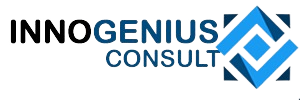A resume can be the golden ticket to your next big career move—if it’s crafted the right way. In today’s competitive job market, many resumes fail to make the cut because they lack a crucial element: impact. If your resume reads like a mere list of responsibilities, it could be underselling your potential. To truly stand out, you need to shift the focus from duties to accomplishments. Let’s dive into why this small change can make a massive difference and how you can implement it effectively.
Why Focusing on Achievements Matters
1. Recruiters Are Looking for Impact, Not Just Effort
Hiring managers sift through hundreds of resumes, often spending no more than a few seconds on each. A task-oriented resume may demonstrate that you’ve held a position, but it doesn’t show how you’ve excelled. By highlighting measurable accomplishments, you immediately communicate your value in a tangible, relatable way.
For instance:
- Instead of writing: “Managed a team of sales representatives,”
Try: “Led a sales team of 10 to achieve a 25% increase in quarterly revenue.”
This small change immediately demonstrates leadership and results, catching the recruiter’s attention.
2. Achievements Showcase Problem-Solving Skills
Employers want to know how you can solve their problems. Quantifiable results such as “reduced operating costs by 15%” or “developed a training program that increased employee retention by 30%” provide evidence of your problem-solving abilities and demonstrate your value.
How to Transform Duties Into Achievements
Step 1: Reflect on Your Contributions
Think back on your career. What challenges did you face, and how did you overcome them? What measurable results did you achieve? Did you:
- Exceed targets or expectations?
- Save time, money, or resources for your company?
- Improve processes or boost efficiency?
Step 2: Use Quantifiable Metrics
Numbers speak louder than words. Metrics provide clear proof of your success, helping recruiters visualize the scale of your impact. Examples include:
- Revenue increases
- Cost savings
- Efficiency improvements
- Team growth or performance enhancements
For example:
- From: “Handled client accounts and maintained relationships.”
To: “Managed a portfolio of 15 high-value clients, increasing account retention by 20% year-over-year.”
Step 3: Use Action-Oriented Language
Start each bullet point with a strong action verb like “spearheaded,” “optimized,” “implemented,” or “innovated.” Pair these with specific results to create a powerful narrative of your achievements.
For instance:
- From: “Responsible for coordinating marketing campaigns.”
To: “Coordinated marketing campaigns that resulted in a 40% boost in lead generation within six months.”
Common Mistakes to Avoid When Highlighting Achievements
1. Being Vague
Generic statements like “improved team performance” or “achieved significant results” lack impact. Be specific. What exactly improved, and by how much?
2. Overloading with Buzzwords
While terms like “synergize” or “leverage” can sound impressive, they often come across as filler. Instead, focus on concrete examples and outcomes.
3. Ignoring Soft Skills
Though measurable achievements are critical, don’t neglect the soft skills that facilitated your success. For instance, leadership, communication, and adaptability often underpin your quantifiable achievements.
Real-World Example: Turning a Task-Based Resume into an Achievement-Focused One
Before:
“Oversaw the onboarding process for new hires.”
After:
“Streamlined the onboarding process, reducing new hire integration time by 30% and increasing employee satisfaction scores by 15%.”
Notice how the revised version provides a clearer picture of the candidate’s impact, making them more attractive to potential employers.
The Competitive Edge of an Achievement-Oriented Resume
1. Commanding Attention in Applicant Tracking Systems (ATS)
Most companies use ATS to filter resumes before they ever reach a human recruiter. Resumes rich in action verbs and measurable achievements tend to perform better in these systems, increasing your chances of making it to the next stage.
2. Making a Lasting Impression in Interviews
A resume focused on achievements sets the stage for impactful interview conversations. When your resume highlights measurable successes, you’re more likely to be asked about those experiences, giving you an opportunity to showcase your expertise further.
3. Aligning With Leadership Roles
Executives and leaders are often evaluated on their ability to deliver results. A results-driven resume immediately positions you as someone capable of driving organizational success.
When to Seek Professional Help
Transforming your resume into a results-oriented document can feel overwhelming, especially when you’re unsure how to quantify your achievements. This is where professional resume writers can step in. With industry knowledge and expertise, they can help:
- Identify the key metrics to highlight.
- Craft a compelling narrative tailored to your career goals.
- Optimize your resume for both human readers and ATS.
Let’s Spotlight Your Achievements
Your career is full of unique accomplishments that deserve the spotlight. Don’t let your resume undersell your value by focusing solely on duties. With a few strategic changes, you can transform it into a powerful tool that opens doors to new opportunities.
Ready to get started? Let’s talk about your career goals. Share them in the comments or message me directly for a quick, personalized resume review. Together, we’ll make sure your achievements shine and position you as the standout candidate in your field.
Final Thoughts: Small Changes, Big Results
The difference between a good resume and a great one often boils down to this small but significant shift: showcasing achievements over responsibilities. This approach doesn’t just tell recruiters what you did—it shows them the impact you’ve made, setting the stage for your next career leap. Don’t just list your story; tell it with impact, and watch the opportunities come knocking.

